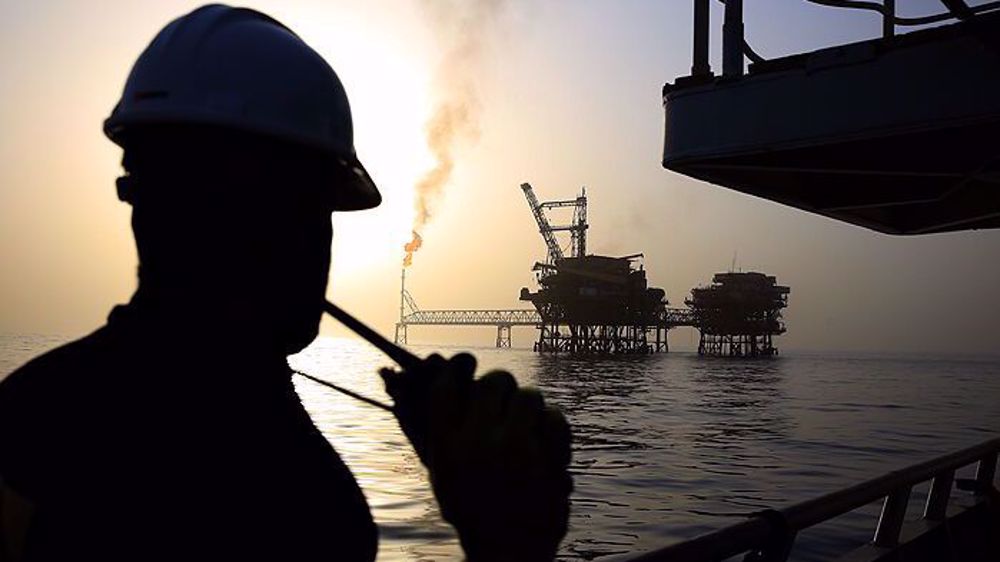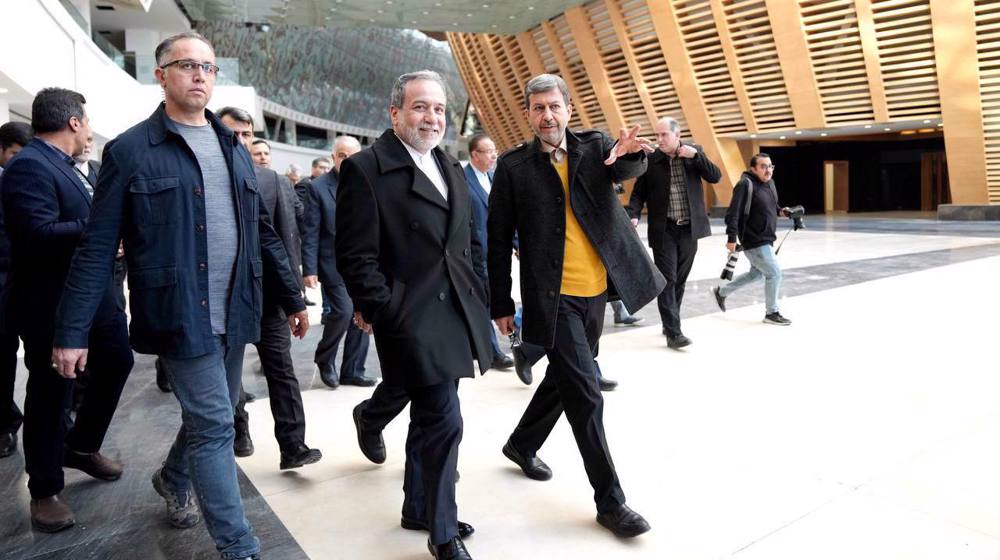Russia vows to help Iran remain equal energy player
Russia says it supports Iran in the face of US sanctions and wants the Middle Eastern powerhouse to remain an equal player in the energy market despite American efforts to blot Tehran out of the market.
“As regards restrictions on Iranian exports, we support Iran and we believe that the sanctions are unlawful; they have not been approved by the UN,” Russian Energy Minister Alexander Novak told CNBC.
Washington has demanded that Saudi Arabia pump more oil to compensate for lower exports from Iran after the United States slapped fresh sanctions on Tehran in November.
Saudi Oil Minister Khalid al-Falih on Tuesday accused Iran of putting the global energy supply at risk.
Novak disputed the claim, saying he did not think Iran should be considered as the cause of the unstable situation in the region as he blamed confrontational US policies.
Tensions have escalated since May when the US administration ordered the deployment of an aircraft carrier strike group, bombers and additional troops to the Middle East, citing unspecified “threats” from Iran.
The decision came just after the United States ended waivers to the remaining importers of Iranian oil with the aim of slashing the country’s crude exports to zero.
“These steps seriously destabilize the situation, not only in Iran, upon whom the sanctions have been imposed, but, as we can all see, in the entire region around the Persian Gulf,” Novak said Tuesday.
On Monday, he told his Iranian counterpart Bijan Zangeneh in Vienna that Moscow wanted Tehran to remain an equal energy player, a statement released by the Russian energy ministry said.
Oil exports continue
Zangeneh also told Bloomberg Iran is working “day and night” on creative ways to beat the sanctions and export its oil even as he admitted that the restrictions were having an impact on the country.
“No doubt,” he said, when asked if he was seeing any impact on the Iranian economy from the US “maximum pressure” policy.
“It has negative impact on our economy, but it doesn’t mean that we don’t resist against these unfair, illegal import sanctions against Iran from the United States,” the minister added.
Zangeneh refused to disclose export figures or comment on reports that Iran still continued sales to China and even Europe. “We want to sell our oil. It is clear that we have the relationship with our customers,” he said.
The minister also said he “cannot open and disclose the way and manner that we are doing during the sanction period because it will help the United States to put more pressure on Iran.”
“It’s the right of all customers and producers to know the figures, but this market is manipulated by the United States.
“This is not our difficulty; this is the difficulty imposed against us by the United States that obliges me not to say many things … for the benefit of my nation.”
On Tuesday, OPEC exempted Iran as it decided to extend supply cuts until March 2020 with the aim of propping up crude prices.
A deal, already in place which started in January, reduces production by 1.2 million barrels per day.
No Instex without oil deal
Iran also apparently has the Europeans on its side in an effort to skirt the US sanctions, but the bloc’s failure to operationalize a special purpose vehicle (SPV) has agitated the Islamic Republic.
Zangeneh said the mechanism called Instrument in Support of Trade Exchanges (Instex) won’t be useful if it doesn’t allow for oil sales. “Without oil deal, it’s very clear, Instex will not work.”
On Friday, the three European signatories to the 2015 nuclear deal - France, Germany and the United Kingdom - confirmed that Instex was finally operational, but Iran was not impressed.
The Europeans say the scope of Instex is initially confined to humanitarian goods such as medicine, medical devices and food, but Zangeneh’s remarks doubled down on oft-asserted Iranian stance that the vehicle should allow for its oil exports in the first place.
The Year That Was: ‘Warmongers’ who mocked intl. law to aid, abet, prop up wars in 2025
Forged by fire: Iran’s military preparedness at an all-time high after 12-day war
North Korea test launches long-range cruise missiles
Israeli forces abduct five youths in fresh southern Syria incursion
The Year That Was: 'Newsmakers' who shaped headlines in 2025 – for good or bad
Pentagon loses track of billions in arms sent to Israel during Gaza genocide: Report
Iran FM underlines Yemen's territorial integrity in talks with Saudi, Emirati counterparts
China begins military drills around Taiwan in ‘stern warning’ to external forces












 This makes it easy to access the Press TV website
This makes it easy to access the Press TV website